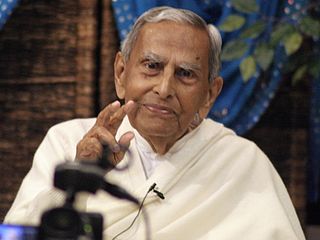A Quote by Martin Luther King, Jr.
In the event of a violent revolution, we would be sorely outnumbered. And when it was all over, the Negro would face the same unchanged conditions, the same squalor and deprivation-the only difference being that his bitterness would be even more intense, his disenchantment even more abject. Thus, in purely practical as well as moral terms, the American Negro has no rational alternative to nonviolence.
Quote Topics
Abject
Alternative
American
Being
Bitterness
Conditions
Deprivation
Difference
Disenchantment
Even
Event
Face
His
Intense
Moral
More
Nonviolence
Only
Only Difference
Outnumbered
Over
Practical
Purely
Rational
Revolution
Same
Squalor
Terms
Thus
Unchanged
Violent
Violent Revolution
Well
Would
Would Be
Related Quotes
The matriarchal society is thus the decadent and broken. The strongly matriarchal character of Negro life is due to the moral failure of Negro men, their failure to be responsible, to support the family, or to provide authority. The same is true of American Indian tribes which are also matriarchal today.
His master’s pain was his pain. And it hurt him more for his master to be sick than for him to be sick himself. When the house started burning down, that type of Negro would fight harder to put the master’s house out than the master himself would. But then you had another Negro out in the field. The house Negro was in the minority. The masses—the field Negroes were the masses. They were in the majority. When the master got sick, they prayed that he’d die. If his house caught on fire, they'd pray for a wind to come along and fan the breeze.
I maintain that I have been a Negro three times--a Negro baby, a Negro girl and a Negro woman. Still, if you have received no clear cut impression of what the Negro in America is like, then you are in the same place with me. There is no The Negro here. Our lives are so diversified, internal attitudes so varied, appearances and capabilities so different, that there is no possible classification so catholic that it will cover us all, except My people! My people!
When the Negro was completely an underdog, he needed white spokesmen. Liberals played their parts in this period exceedingly well.... But now that the Negro has rejected his role as an underdog, he has become more assertive in his search for identity and group solidarity; he wants to speak for himself.
This is what happens to man in death. He puts off his overcoat, or what we call the physical, the gross body, and he is clothed in what, for the time being, I would call the astral body. The man continues to be the same, even as I would continue to be the same, if I took off this shawl. I would then appear to you in my shirt, but I would continue to be the same man.
Whatever the country, capitalist or socialist, man was everywhere crushed by technology, made a stranger to his own work, imprisoned, forced into stupidity. The evil all arose from the fact that he had increased his needs rather than limited them; . . . As long as fresh needs continued to be created, so new frustrations would come into being. When had the decline begun? The day knowledge was preferred to wisdom and mere usefulness to beauty. . . . Only a moral revolution - not a social or political revolution - only a moral revolution would lead man back to his lost truth.
Negro writers, just by being black, have been on the blacklist all our lives. Do you know that there are libraries in our country that will not stock a book by a Negro writer, not even as a gift? There are towns where Negro newspapers and magazines cannot be sold except surreptitiously. There are American magazines that have never published anything by Negroes. There are film studios that have never hired a Negro writer. Censorship for us begins at the color line.
A story went the rounds about a San Franciscan white matron who refused to sit beside a Negro civilian on the streetcar, even after he made room for her on the seat. Her explanation was that she would not sit beside a draft dodger who was a Negro as well. She added that the least he could do was fight for his country the way her son was fighting on Iwo Jima. The story said that the man pulled his body away from the window to show an armless sleeve. He said quietly and with great dignity, "Then ask your son to look around for my arm, which I left over there.
It's very easy for one talking about violence and hatred for the white man to appeal to [Negro from ghetto]. I have never thought of this, but I think this is quite true, that if, even if you talk to them about nonviolence from a tactical point of view, they can't quite see it because they don't even know they're outnumbered.




































